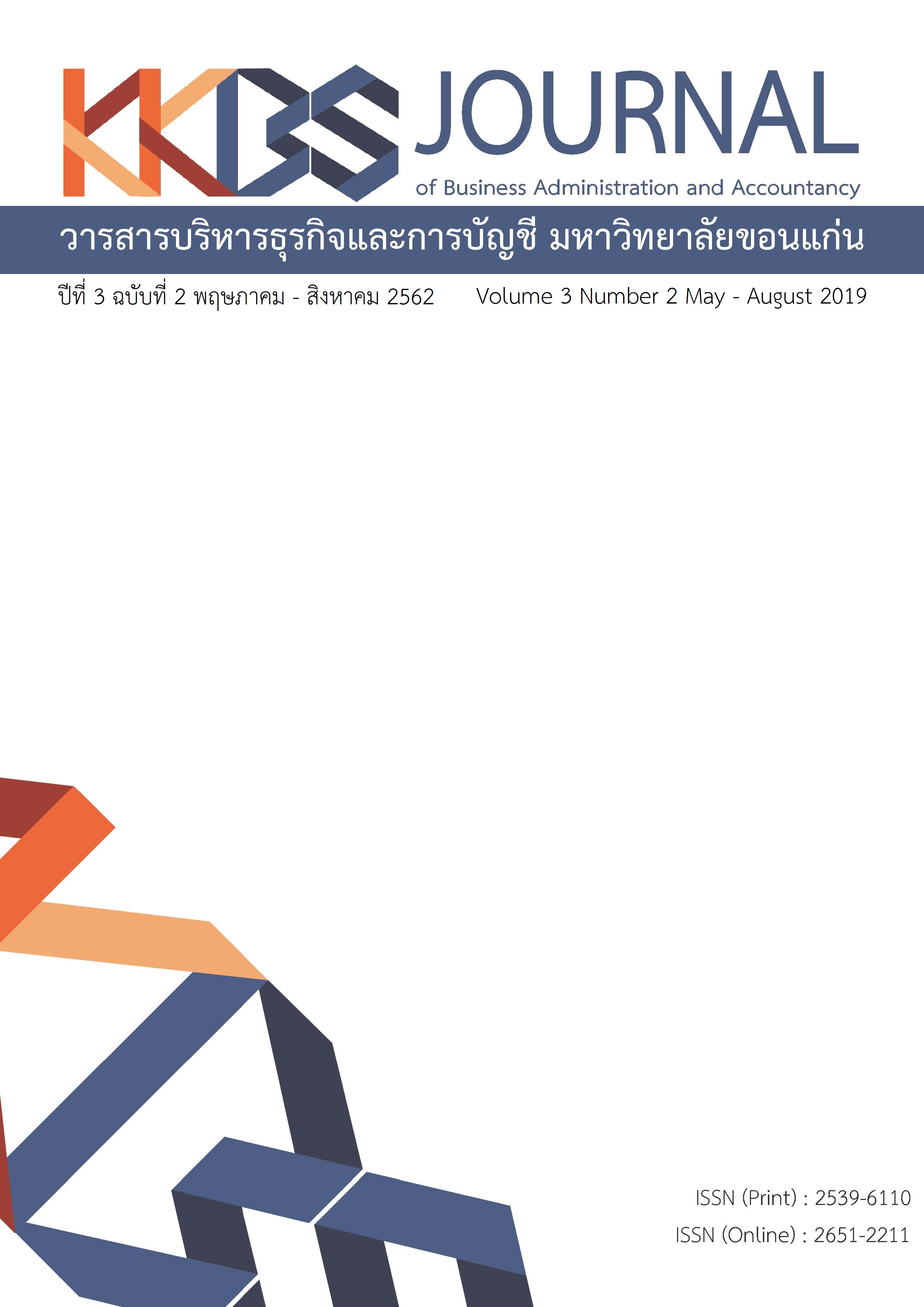The Guidelines of Creative Agro Tourism Destination at Rajamangala University of Technology Isan Surin Campus
Main Article Content
Abstract
The objective of the study was to examine the Agro tourism and potentials for Creative Agro Tourism Destination at Rajamangala University of Technology Isan Surin Campus.The study applied both qualitative and qualitative methods. The quantitative phase was carried outthrough the use of questionnaire collecting data from the 400tourist visit Rajamangala University of Technology Isan Surin. The qualitative phase was in-depth interview with the community leaders and stakeholders.
The findings revealed that Agro Tourism resources were the main attractive factor of potential tourists, supported by rapid and convenience means for reaching to the area. Abundance of agricultural resources made “agro tourism” evolved, becoming a specific kind of tourism which was a great reputation for to be another outstanding destination, with many types of accommodation and adequate amount of room to reserve for. However, there were relatively few public transportation within but can’t inside the area. The other incident was illegal invasion of forest area for commercial purposes.
Article Details
The articles published in the journals are the authors' opinions, not the opinion of the editorial team or administrative staff. The articles published is copyright of the Journal of Business Administration and Accounting, Khon Kaen University.
References
กรมส่งเสริมการเกษตร. (2550). คู่มือโครงการสร้างเกษตรกรคลื่นลูกใหม่และพัฒนายุวเกษตรกร ปี 2551. กรุงเทพฯ: กรมส่งเสริมการเกษตร
บุญเลิศ จิตตั้งวัฒนา. (2548). การพัฒนาการท่องเที่ยวแบบยั่งยืน. กรุงเทพฯ: เพรส แอนด์ ดีไซน์.
บุญเลิศ จิตตั้งวัฒนา. (2548). อุตสาหกรรมการท่องเที่ยว. กรุงเทพฯ: เพรส แอนด์ ดีไซน์.
ปองพล ธวัลหทัยกุล, ชัชฎารัตน์ มุกดา และวศิรินทร์ วารีเศวตสุวรรณ. (2550). รายงานวิจัยฉบับสมบูรณ์แนวทางในการพัฒนาศักยภาพแหล่งท่องเที่ยวเชิงเกษตรกรรมในกลุ่มจังหวัดอีสานใต้. กรุงเทพฯ: สำนักงานกองทุนสนับสนุนการวิจัย (สกว.)
พยอม ธรรมบุตร. (2549). เอกสารประกอบการเรียนการสอนเรื่องหลักการท่องเที่ยวเชิงอนุรักษ์. กรุงเทพฯ: สถาบันพัฒนาการท่องเที่ยวเพื่ออนุรักษ์สิ่งแวดล้อม.
รำไพพรรณ แก้วสุริยะ. (2544). การท่องเที่ยวเชิงเกษตร (Agro-tourism). สืบค้นเมื่อ 7 มกราคม 2562, จาก https://www.trekkingthai.com/cgibin/webboard/generate.pl?board=travel&content=0394
วรรณา วงษ์วานิช. (2546). ภูมิศาสตร์การท่องเที่ยว. พิมพค์รั้งที่ 2. กรุงเทพฯ: ภาควิชาภูมิศาสตร์ คณะสังคมศาสตร์ มหาวิทยาลัยศรีนครินทรวิโรฒ ประสานมิตร
วรรณา ศิลปอาชา. (2545). การจัดการทรัพยากรการท่องเที่ยว. นนทบุรี: มหาวิทยาลัยสุโขทัยธรรมาธิราช.
นิออน ศรีสมยง. (2552). การจัดการทรัพยากรการท่องเที่ยวในชนบทและทรัพยากรการท่องเที่ยวเชิงเกษตร. นนทบุรี: มหาวิทยาลัยสุโขทัยธรรมธิราช.
สินธุ์ สโรบล, อุดร วงษ์ทับทิม และสุภาวณี ทรงพรวาณิชย์. (2545). การท่องเที่ยวโดยชุมชน: แนวคิดและ ประสบการณ์. เชียงใหม่: มิ่งเมืองนวรัตน์ จำกัด.
สำนักงานการท่องเที่ยวและกีฬาจังหวัดสุรินทร์. (2559). แผนพัฒนาการท่องเที่ยวแห่งชาติพ.ศ. 2555-2559. กรุงเทพฯ: กรมการท่องเที่ยว กระทรวงการท่องเที่ยวและกีฬา.
Buhalis, D. (2000). Strategic use of information technologies in the tourism industry tourism management. Essex: Pearson Education.
Jan, H. & S. Karel. (2 0 0 4 ). Agrotourism in the context with the rural development. Retrieved July 30, 2009, from https://www.czu.cz.
Nevin, A., Ilkden, T., Coskun, C. & Sultan, G. (2004). Rural women and agrotourism in the context of sustainable rural development: A case study from Turkey. Retrieved 6 July 2012, from https://www.environmental-expert.com.
Yamane, T. (1973). Statistics an introduction analysis. New York: Harper & Row.


